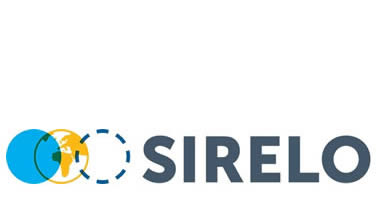Veils or Bars? Choosing the area

Lebanon is not a big country but despite its lack of size, it is hosting 18 official religious sects. And each city, village and neighborhood has it's own religious as well as political dominance. For example, Tripoli in the North is hosting a majority of Sunni Muslims, the Northern seaside villages of Batroun and Byblos are predominantly Christian - just as the mountains around them. Most parts of the Bekaa Valley are hosting Shia Muslims and the biggest city south of Beirut, Saida, has mostly Sunni Muslims.
Beirut is more complicated than that. First of all, the city is divided between the Eastern and Western side, with Down Town Beirut and the former green line being the division between them since the Civil War.
The Eastern Part (Ashrafie) is known as the predominantly Christian (French) area and the Western part (Hamra) as the Muslim one with a lot of Western Expats as well as university students mixing it up to the most "international" area of Beirut.
(Almost) no matter who you are, you are usually welcome in most parts of Lebanon and it's up to you and your budget to choose the type of neighborhood you prefer. But keep in mind that if you want to be able to pop down to the minimarket on a Friday to buy a bottle of wine, choose a Christian neighborhood. If you don’t like dog pop on the pavement, choose a Muslim hood.
Before you head out trying to find your favorite part of Lebanon you should know that the Lebanese don't use addresses. Instead, there are always certain facts that you need to know in order to find your desired location:
- The name of the city or village,
- which area in that city or village,
- the name of the main road,
- as well as the most important building close to the location.
It is also crucial that you know the name of the building as well as the name of the shop facing and next to it. Sometimes even the color of the main door needs to be explained in the “address”.
For example, if you want to find a three bedroom flat located at the Christian side of Beirut in a nice, calm, family neighborhood the description of how you find it might sound like this:
Beirut, Ashrafie, Jeitawe, next to Hospital St Marc, on the main road of Jeitawe, facing the Manar gas station, in the SGBL bank building, the black metal gate (not the red one!), third floor, door to the left when you leave the elevator. (Doesn’t sound that hard to find, non ?)
Building standards
Especially, but not only in Beirut, there is a lot of construction of new apartment buildings going on. Most of these new buildings are coming up in middle to upper class areas of Beirut such as Ashrafie, Hamra, Badaro, Sodeco, Down Town, Sofil and Verdun. Naturally, these buildings will have a much higher standard than the older buildings, most of which are dating back from before the start of the civil war in 1975. If you are used to U.S or European standards of living, maybe you should go for one of the newer buildings, since the older ones will not have the same qualities that you are used to. The most common problems in older buildings will be the outdated water pipes and electricity wires, water leaking from the roof and through the walls, and glass windows that are neither water nor wind nor sound proof (the main problems arising during the hard winter storms when it might leak a lot of water through the non isolated windows.)
Some of these older buildings dates back to the French Colonial time and if you like this classic type of architecture (and you don’t mind the hassle) you should look for housing in the areas of Gemmayzeh, Monot and Sursock (all in Ashrafie), or in Clemencau (located in the beginning of Hamra).
TIP:
A major downside of all the constructions going on is of course all the noise they produce. Keep this in mind when you are looking for an apartment, especially if the apartment you have find doesn’t have new modern triple glass soundproof windows. If there is a parking lot on the space next to your building, construction will most probably start within a year or two on that lot.
By Helena Forsell, a 30 something who left her native Sweden for Lebanon 6 years ago. Now she is reinventing life in Beirut.
- My Life Abroad -
A selection of expat stories

"A fun compulsive read!"
J. Matcham, Amazon
"I strongly advise people ready to live abroad to read this book!"
Patrice, Amazon


 AGS Worldwide Movers
AGS Worldwide Movers Fexco payment solutions
Fexco payment solutions 1stMove Car Shipping
1stMove Car Shipping